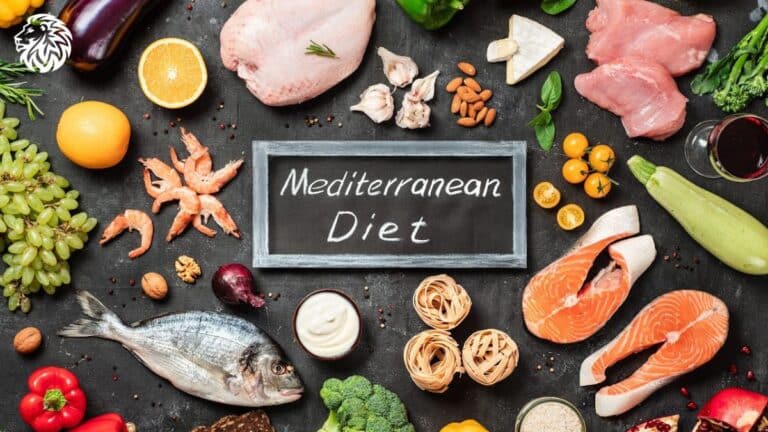When it comes to healthy eating, two diets consistently top the charts: the DASH diet and the Mediterranean diet. Both are celebrated for their heart health benefits, their role in weight management, and their focus on whole foods. But how do they compare, and which one might be better for you? Let’s break down the key differences and benefits of each to help you make an informed choice.
What Is the DASH Diet?
The DASH diet, which stands for Dietary Approaches to Stop Hypertension, was developed primarily to lower blood pressure. It emphasizes reducing sodium intake and encourages a diet rich in fruits, vegetables, whole grains, lean proteins, and low-fat dairy. DASH aims to create a balanced eating plan that promotes heart health while providing all the essential nutrients your body needs.
Key Features of the DASH Diet:
- Low sodium intake: The standard DASH diet recommends limiting sodium to 2,300 milligrams per day. For individuals looking to lower blood pressure more aggressively, a lower sodium intake of 1,500 milligrams is suggested.
- Rich in potassium, magnesium, and calcium: These nutrients play a critical role in regulating blood pressure.
- High intake of fruits and vegetables: The diet encourages at least 4-5 servings of each per day.
- Focus on whole grains: Whole grains like brown rice, quinoa, and oats are key components.
- Lean protein: Poultry, fish, and plant-based proteins like beans and nuts are emphasized, while red meat and processed meats are limited.
- Limited fats and sweets: The DASH diet reduces the intake of saturated fats and added sugars.
What Is the Mediterranean Diet?
The Mediterranean diet is based on the traditional eating patterns of countries bordering the Mediterranean Sea, such as Greece, Italy, and Spain. Unlike the DASH diet, it wasn’t developed for a specific health goal, but numerous studies have shown its benefits for heart health, longevity, and reducing the risk of chronic diseases. The Mediterranean diet emphasizes whole, minimally processed foods and encourages a lifestyle approach to eating that includes social meals and regular physical activity.
Key Features of the Mediterranean Diet:
- High in healthy fats: Olive oil is the primary fat source, with a focus on monounsaturated fats that support heart health.
- Plenty of fruits and vegetables: Like the DASH diet, the Mediterranean diet encourages generous servings of fruits and vegetables.
- Whole grains and legumes: Whole grains like barley and farro, along with beans and lentils, form a major part of meals.
- Moderate intake of fish: Fish and seafood are consumed regularly, while red meat and processed meats are limited.
- Dairy in moderation: Cheese and yogurt are part of the diet, but in smaller amounts compared to DASH.
- Red wine in moderation: A glass of red wine with meals is often part of the Mediterranean lifestyle.
- Focus on herbs and spices: The diet encourages using herbs and spices instead of salt for flavor.
Comparing the Benefits of DASH and Mediterranean Diets
Heart Health
Both the DASH and Mediterranean diets are renowned for their cardiovascular benefits. The DASH diet is specifically designed to lower blood pressure, making it an excellent choice for those dealing with hypertension or looking to prevent it. Its focus on low sodium, along with foods high in potassium and magnesium, is effective in managing blood pressure.
The Mediterranean diet, while not created with hypertension in mind, has been shown to improve heart health by reducing cholesterol levels and lowering the risk of heart disease. Its reliance on healthy fats, like those found in olive oil and fish, can help reduce inflammation and protect against cardiovascular problems.
Winner: For those focused on reducing blood pressure, the DASH diet is likely the better option. However, the Mediterranean diet offers broader cardiovascular protection, particularly in reducing cholesterol and inflammation.
Weight Loss
Both diets can support weight loss, but they approach it differently. The DASH diet provides clear guidelines on portion sizes and calorie intake, which can make it easier for individuals to control portions and reduce overall calorie consumption. Its lower fat content, especially in saturated fats, also supports weight loss efforts.
The Mediterranean diet, on the other hand, isn’t designed specifically for weight loss but can lead to gradual weight reduction through its emphasis on whole, unprocessed foods and healthy fats. The diet encourages mindful eating and slower meal consumption, which can naturally lead to reduced calorie intake over time.
Winner: The DASH diet may provide a more structured approach to weight loss, but the Mediterranean diet can also be effective for those who prefer a more flexible, lifestyle-based approach to eating.
Nutrient Focus
The DASH diet’s focus on reducing sodium and increasing potassium, calcium, and magnesium intake is especially beneficial for those looking to improve blood pressure and heart health. The Mediterranean diet, meanwhile, emphasizes healthy fats, antioxidants, and anti-inflammatory foods, which can help reduce the risk of chronic diseases like cancer and diabetes.
Both diets prioritize whole grains, fruits, vegetables, and lean proteins, but the Mediterranean diet allows more room for healthy fats, especially from olive oil, nuts, and seeds.
Winner: If you’re concerned about managing blood pressure and heart health, the DASH diet’s nutrient focus is more specialized. However, the Mediterranean diet offers broader protection against a range of chronic diseases, thanks to its rich variety of nutrients and healthy fats.
Flexibility and Sustainability
Sustainability is key when choosing a diet, and both the DASH and Mediterranean diets are designed to be long-term lifestyle changes rather than short-term fixes.
The Mediterranean diet may be seen as more flexible, as it allows for moderate consumption of red wine, cheese, and healthy fats, making it easier to incorporate into everyday life without feeling overly restricted. Its focus on social meals and mindful eating also encourages a more holistic approach to food.
The DASH diet, while slightly more restrictive when it comes to sodium and fat intake, is still relatively easy to follow. However, the lower emphasis on fats like olive oil and the reduction in dairy and sweets may be more challenging for some individuals to maintain in the long term.
Winner: The Mediterranean diet may be the more sustainable option for those seeking flexibility and a broader range of foods. The DASH diet, while effective, may feel more restrictive for some individuals.
Which Diet Is Better for You?
The answer to which diet is better depends largely on your personal health goals and lifestyle preferences.
- Choose the DASH diet if: You are specifically focused on lowering blood pressure or need a structured plan to help with weight loss. The DASH diet’s clear guidelines on sodium and portion control can help you manage your heart health more effectively.
- Choose the Mediterranean diet if: You’re looking for a more flexible, holistic approach to eating that promotes long-term health benefits, including reduced risks of heart disease, diabetes, and other chronic conditions. The Mediterranean diet’s focus on healthy fats and plant-based foods makes it a great option for those who enjoy variety and want to incorporate social eating into their lifestyle.
In the end, both diets offer excellent health benefits, so the choice comes down to which approach fits your personal needs and lifestyle better. Whether you opt for the more structured DASH diet or the flexible Mediterranean diet, you’re taking a positive step toward better health.
References
- Cleveland Clinic. (2021, July 29). The Mediterranean diet: Benefits, meal plans, and recipes. Cleveland Clinic. https://my.clevelandclinic.org/health/articles/16037-mediterranean-diet
- Gregory, S. (2023, August 24). DASH diet vs. Mediterranean diet: Comparing similarities, differences, and which is healthiest. Business Insider. https://www.businessinsider.com/dash-diet-vs-mediterranean-comparing-similarities-differences-best-healthiest-2023-8
- UNC Health Talk. (2022, January 10). DASH vs. Mediterranean: Which diet is better? UNC Health. https://healthtalk.unchealthcare.org/dash-vs-mediterranean/
- Mayo Clinic Staff. (2022, March 1). DASH diet: Healthy eating to lower your blood pressure. Mayo Clinic. https://www.mayoclinic.org/healthy-lifestyle/nutrition-and-healthy-eating/in-depth/dash-diet/art-20048456







